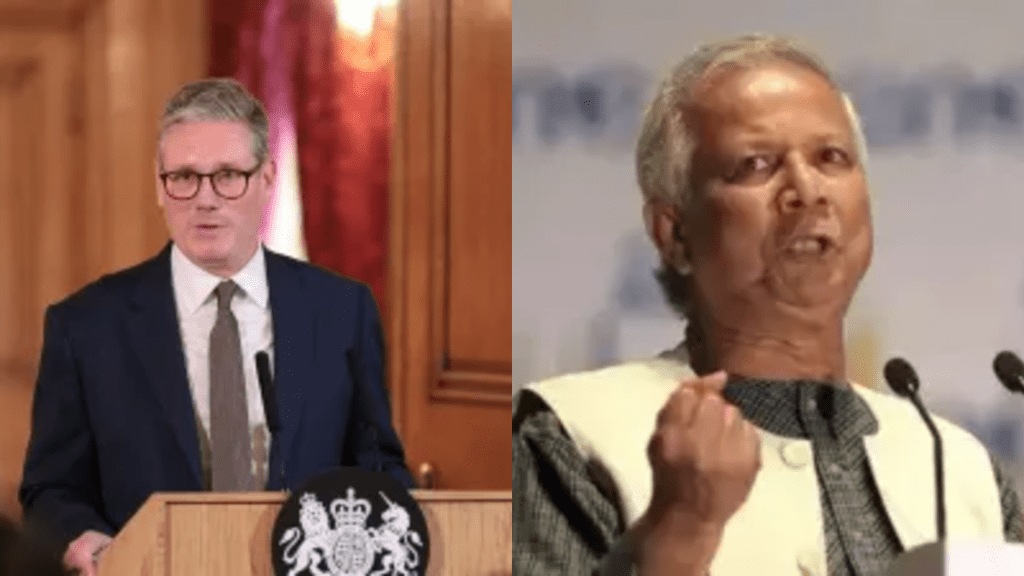Keir Starmer refuses to meet Yunus:In an embarrassment for Bangladesh’s interim, UK Prime Minister Sir Keir Starmer has declined a request to meet interim leader Muhammad Yunus during his recent visit to London, reports Financial Times. The visit was aimed at securing British support to trace and recover billions of dollars allegedly siphoned off by the deposed regime of former prime minister Sheikh Hasina.
Why did Yunus want to meet the UK PM?
Yunus, a Nobel Prize-winning economist who assumed leadership after Hasina’s ousting last August, told the Financial Times that the UK bore a “moral” responsibility to help recover the misappropriated wealth—much of which, he said, had found its way to the UK.
Despite his push, Yunus confirmed there had been no direct communication with the Labour leader. “I have no direct conversation with him,” he said, though he remained confident that Starmer would ultimately support the initiative. “This is stolen money,” he asserted.
UK government officials acknowledged that there were currently no plans for Starmer to meet Yunus and declined to elaborate further.
Why does this matter?
The matter is politically sensitive in the UK, particularly for the Labour Party, given the connections between Starmer’s close ally Tulip Siddiq and Sheikh Hasina. Siddiq, a former anti-corruption minister, resigned in January following allegations that she had received material benefits from individuals linked to the Awami League—Hasina’s political party. Siddiq, who is Hasina’s niece, has denied wrongdoing but stepped down from her ministerial post.
In a letter sent this week, Siddiq requested a meeting with Yunus to clarify what she called “misunderstandings” being circulated by Bangladesh’s Anti-Corruption Commission. Yunus declined the request, stating, “This is a legal issue … a legal process. It’s not personal involving me.”
What do we know about the ‘looted’ Bangladeshi assets?
Bangladeshi authorities estimate that as much as $234 billion was illicitly transferred out of the country during Hasina’s 16-year rule. The UK, along with Canada, Singapore, the Caribbean, and the Middle East, has been identified as a key destination for these funds. The UK’s National Crime Agency has already taken initial steps, including freezing two London properties linked to Hasina’s allies.
Yunus emphasised that his visit was “just the beginning” of a broader international effort and said his administration was seeking cooperation from British businesses, financial institutions, law enforcement, and intelligence agencies. “We need the support from the people of Great Britain,” he said, expressing hope for future meetings with UK leaders, including former Prime Minister Rishi Sunak.
While acknowledging some UK assistance in tracing the funds, Yunus argued Britain had both a “legal and moral obligation” to act more decisively.

